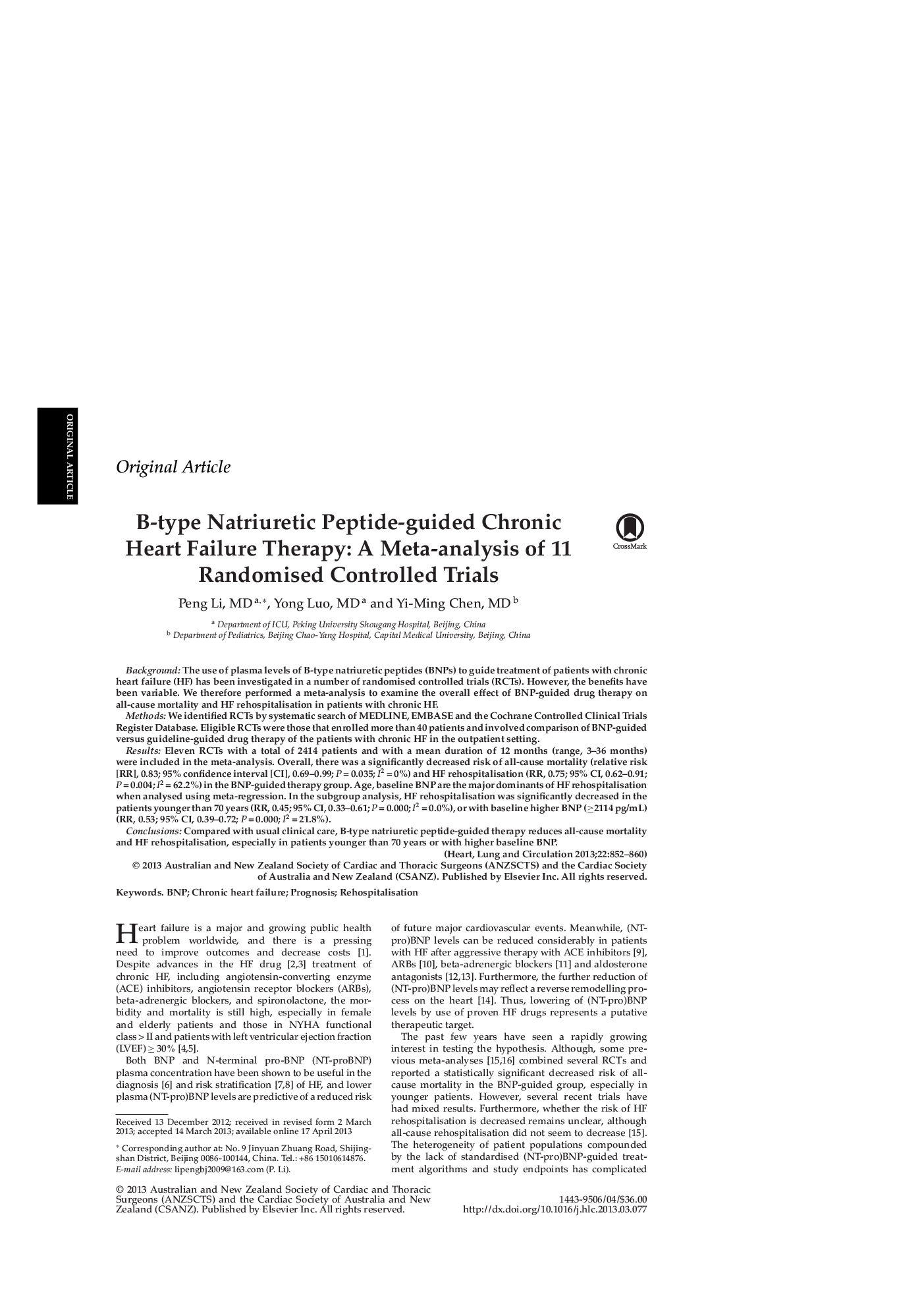| Article ID | Journal | Published Year | Pages | File Type |
|---|---|---|---|---|
| 2917764 | Heart, Lung and Circulation | 2013 | 9 Pages |
BackgroundThe use of plasma levels of B-type natriuretic peptides (BNPs) to guide treatment of patients with chronic heart failure (HF) has been investigated in a number of randomised controlled trials (RCTs). However, the benefits have been variable. We therefore performed a meta-analysis to examine the overall effect of BNP-guided drug therapy on all-cause mortality and HF rehospitalisation in patients with chronic HF.MethodsWe identified RCTs by systematic search of MEDLINE, EMBASE and the Cochrane Controlled Clinical Trials Register Database. Eligible RCTs were those that enrolled more than 40 patients and involved comparison of BNP-guided versus guideline-guided drug therapy of the patients with chronic HF in the outpatient setting.ResultsEleven RCTs with a total of 2414 patients and with a mean duration of 12 months (range, 3–36 months) were included in the meta-analysis. Overall, there was a significantly decreased risk of all-cause mortality (relative risk [RR], 0.83; 95% confidence interval [CI], 0.69–0.99; P = 0.035; I2 = 0%) and HF rehospitalisation (RR, 0.75; 95% CI, 0.62–0.91; P = 0.004; I2 = 62.2%) in the BNP-guided therapy group. Age, baseline BNP are the major dominants of HF rehospitalisation when analysed using meta-regression. In the subgroup analysis, HF rehospitalisation was significantly decreased in the patients younger than 70 years (RR, 0.45; 95% CI, 0.33–0.61; P = 0.000; I2 = 0.0%), or with baseline higher BNP (≥2114 pg/mL) (RR, 0.53; 95% CI, 0.39–0.72; P = 0.000; I2 = 21.8%).ConclusionsCompared with usual clinical care, B-type natriuretic peptide-guided therapy reduces all-cause mortality and HF rehospitalisation, especially in patients younger than 70 years or with higher baseline BNP.
